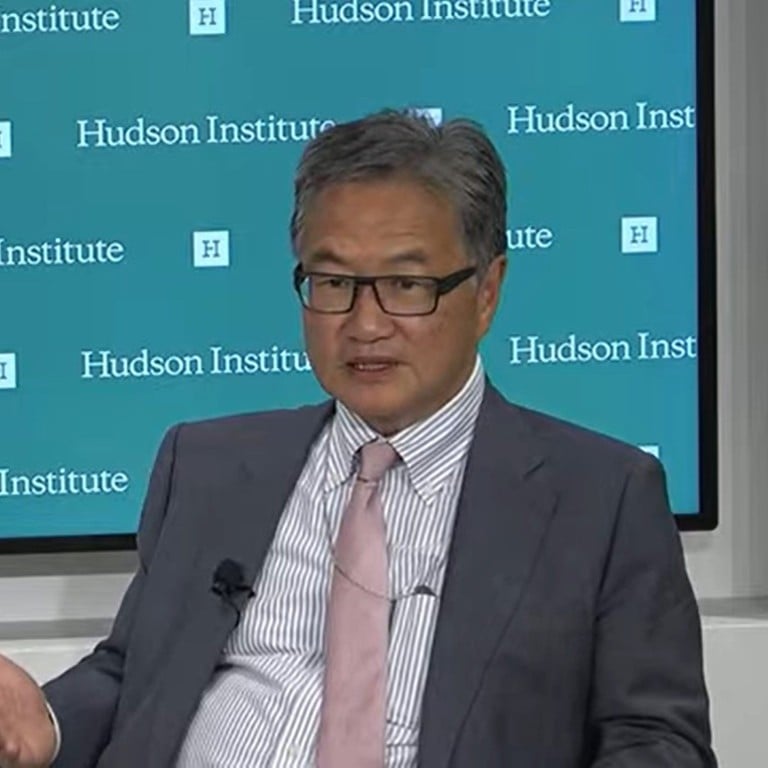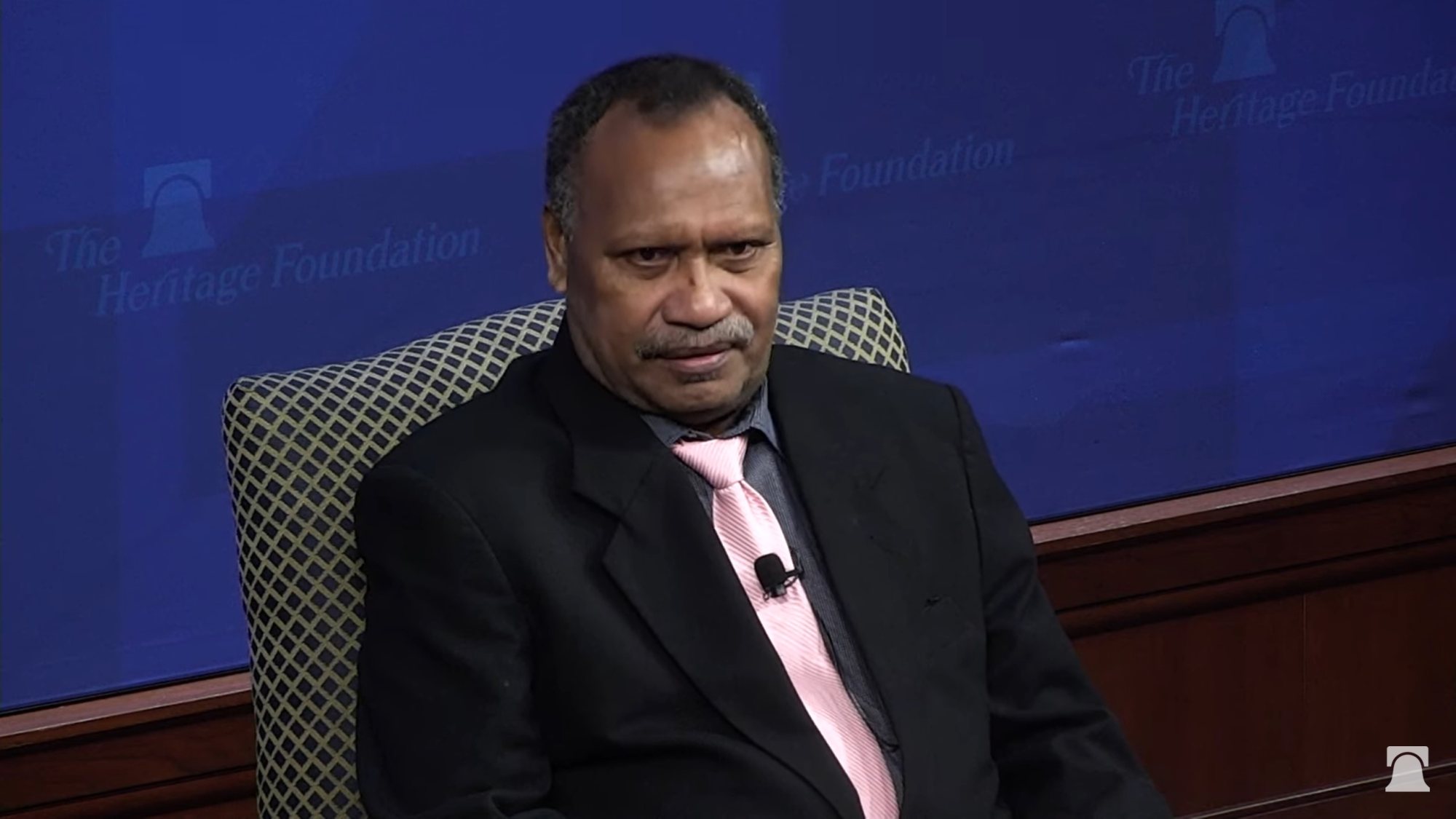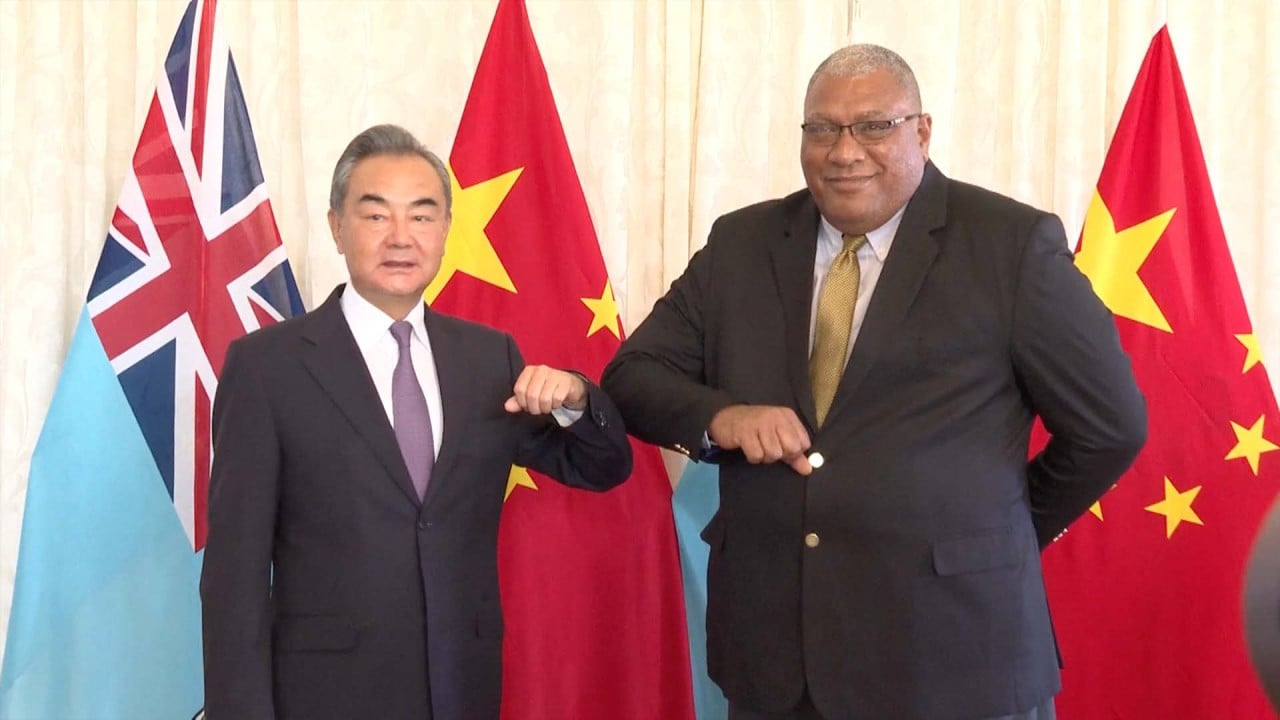
US risks losing Pacific islands to China’s influence if it does not speed up outreach: Biden adviser
- National security at stake amid Beijing’s ‘economic coercion’ in region, says US special presidential envoy Joseph Yun
- Struggle between world’s two largest economies has widened political divides in some Pacific island nations
The US should accelerate its outreach in the Pacific islands vis-à-vis China’s gains, a senior American diplomat urged, pointing to national security concerns amid Beijing’s “economic coercion” in the region.
Joseph Yun, a US special presidential envoy for renegotiating agreements with three tiny but strategically important Pacific island states, said Washington had neglected the region but was trying recently to make amends.
“Now we’re playing … a little bit of catch-up, I would say,” said Yun, speaking at an event organised by the Hudson Institute, a think tank, in Washington on Friday. “We need to accelerate our catch-up.”
“We do have a China challenge,” he said. “Strategic competition with China.”
As US Congress debates budget, Pacific island nations watch with concern
The ongoing struggle between the world’s two largest economies to pull these long-neglected islands into their respective orbits has widened political divides in some of the nations.
“Going back to the Solomon Islands is not easy,” he said in remarks delivered at an event organised by the Heritage Foundation, a think tank in Washington.
“They will try their very best to arrest us because of the way we here in the US are trying to communicate and advocate for the principles of democracy, something the CCP would not like to hear.”
Suidani – a former premier of Malaita, the South Pacific archipelago’s most populous province – was removed from office in February after a no-confidence vote by Malaita’s legislative assembly.
He has accused the country’s lawmakers of acting at the behest of China’s Communist Party in exchange for bribes.
Hailed by some pro-America observers as a symbol of resistance against Beijing’s influence in the Pacific, Suidani grabbed international headlines in 2021 after he banned Chinese companies from investing in his province.
Fiji pivoting back to ‘well-established’ partners by axing China security deal
The announcement raised fears in the US about China establishing new security footholds in the region, and the Asian giant’s perceived ability to cajole smaller islands to act in its favour.
In the letter, Panuelo said 39 of 50 Solomon’s parliament members had received payments from China.

Yun said it “is quite concerning that this amount of coercion, bribery and erosion of rule of law” was transpiring.
Yet Yun asserted that the US had stronger cultural bonds with the island nations than China.
Chinese lending dips to new low in the Pacific islands: report
Yun said the US had reached agreement on “top-line” numbers for aid to the three compact states, which total US$6.5 billion over 20 years for all three.
“Obviously, the money has to be appropriated,” Yun said. “We have been doing the rounds in Congress. And there is certainly strong bipartisan support.”
“I’m very optimistic it will get approved by Congress in [a] short time,” he added.
Washington is negotiating how and where the money will be spent as new funding pledges made to other Pacific island nations worth US$800 million await congressional approval amid fierce partisan debate over slashing federal spending.
“I’m sure they would welcome President Biden warmly if he were to go there,” Yun said.



